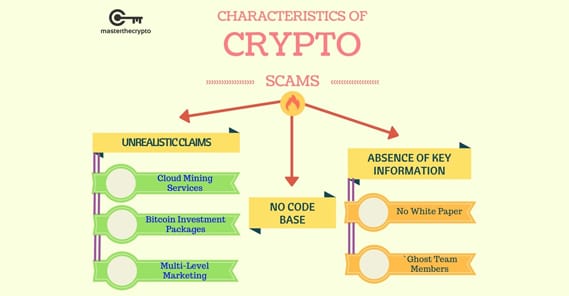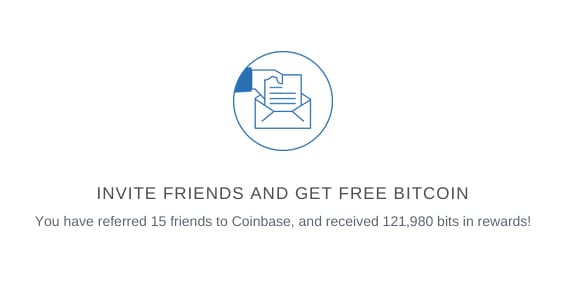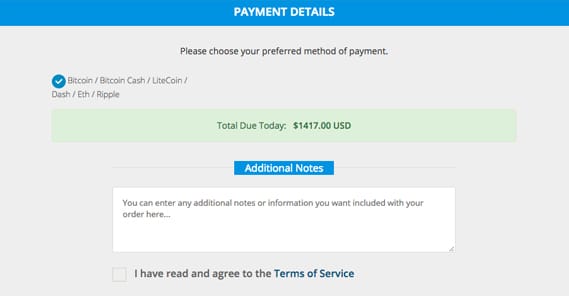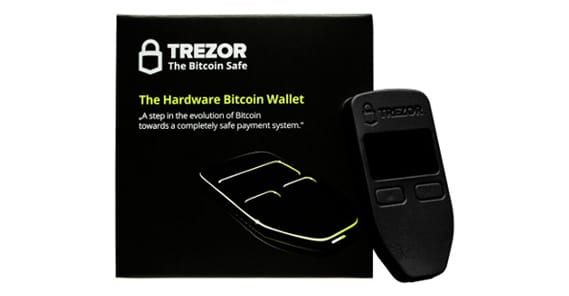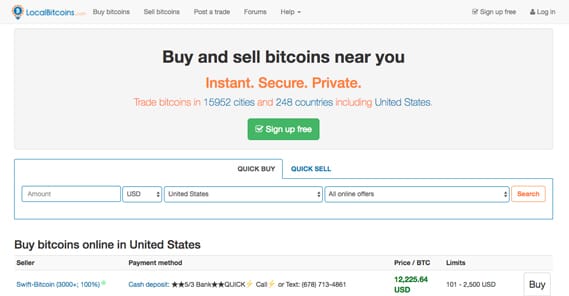How to Earn Money with Cryptocurrency Affiliate Programs
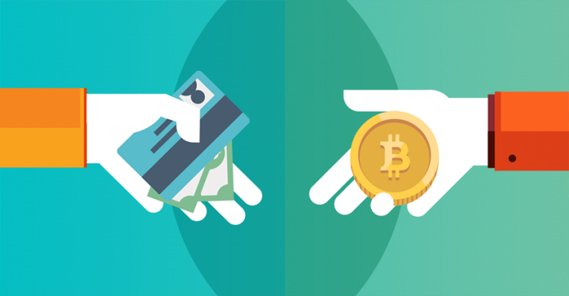
At this point, we all know what an affiliate program is. We know how to find the worthwhile, high paying affiliate programs. We know how to promote our affiliate codes organically and profitably. So what’s the new twist I’m bringing to the table today? Cryptocurrency.
Cryptocurrencies like Bitcoin really shouldn’t be thought of as currencies the way they stand today. It’s simply too difficult to use them as currencies without exchanges in every step of the process. They’re volatile and they’re traded, bought and sold like commodities, and that’s the way I’m going to treat them.
There are two ways, then, to approach a cryptocurrency affiliate program. Some of them are programs that deal with cryptocurrencies, but which pay you in dollars. Others are a wide range of services – usually those dealing in cryptocurrencies, but not necessarily – but which will pay out your affiliate commissions in Bitcoin or another cryptocurrency.
Both of them work pretty much the same as regular affiliate networks and referral programs. You sign up for the site. You get a referral link, which you can then promote to your audience. When someone using your referral link to sign up then completes whatever initial requirements they have to complete, you get your commission. The only difference is that sometimes those commissions are paid out in cryptocurrency.
Potential Issues
There are a few potential issues with going all-in with a cryptocurrency-based affiliate program. Before I go recommending any affiliate programs, I want to caution you for when you’re doing research on your own.
First up, like with all styles of affiliate program, there are scammers everywhere. This is not unique to the cryptocurrency markets, but it’s perhaps a little worse in a world where new businesses are springing up every week. Beware any affiliate program that has no reviews, no history, and seemingly too good to be true promises.
The typical scam is pretty simple; the affiliate program just refuses to verify some percentage of your commissions. They might have an explanation like the commission coming from a blacklisted IP, or from a country they don’t support, or some other attribute about the user that disqualifies them. They might also have no explanation and simply deny you the commission. The site gains a customer, but you don’t get your referral.
There are additional avenues for scams because of the volatility of Bitcoin and other cryptocurrencies. Say, for example, I set up an affiliate program saying you get a commission every time someone signs up with your link and goes on to deposit $100 worth of Bitcoin to their account. That seems fine, right? Well, what if the user deposits $100 worth of Bitcoin, but then the price of Bitcoin falls, making their deposit only worth $90? Now I can deny you the commission, saying the user didn’t maintain the right size balance.
And, as I mentioned, with an industry as new and variable as cryptocurrencies, there are a ton of different businesses springing up and going under every week. It’s very easy for a scammer who is caught and called out to set up a new business under a different name to run the same scam again. It can be pretty difficult to track down who actually founded such a business, so it’s hard to distinguish newcomers from old scammers if you’re not careful.
Plus, it doesn’t have to be a newcomer to he industry to pull a scam. There’s even some evidence to suggest Coinbase has pulled it.
And, of course, there’s the inherent volatility of a cryptocurrency. If you’re getting paid a commissions in a cryptocurrency, the value of that commission can swing up or down wildly in the span of days or weeks, based entirely on the news and public perception of the market. Now, obviously, if you’re not doing anything with your coin and you’re just holding it until it rises to the moon, that’s fine. A little volatility along the way is no big deal.
The problem comes when you’re trying to run a business. If you’re trying to use the payouts you get from your affiliate marketing to reinvest into your business, you want that money to be liquid and valuable. If your commission is $50 one day and $30 another based entirely on the whims of the market, you don’t have a stable source of income to reinvest. In those cases, I’d recommend looking for affiliate networks that pay out in cash, even if you’re promoting a coin-based product or service.
Types of Affiliate Opportunities
In the cryptocurrency world, there are a few different kinds of businesses you can use to find affiliate programs. I’ll cover each one individually, with example programs you might try out, but let’s do an overview first.
Before we dig in, though, just remember the core pillar of affiliate marketing; start small. Don’t go all-in promoting a service until you’re absolutely sure that affiliate program is going to pay out. The last thing you need to do is rack up thousands of dollars in commissions that just don’t get paid. That’s effort you spent and customers you referred for free, and that’s exploitation.
The first kind of affiliate program is pretty typical; retail. All manner of storefronts will offer referral programs or affiliate sales when you bring customers to them. The most famous of these is, of course, Amazon themselves. They don’t pay out in Bitcoin or deal with cryptocurrencies at all thus far, but a lot of other retails do. In particular, there are a lot of coin-centric retailers springing up like CryptoPet, stores that are essentially just normal retailers, except they allow you to pay with a cryptocurrency. Since they’re competing with major retailers like Amazon or Petco, they’ll often incentivize new customer acquisition with a referral program.
Casinos are a second kind of affiliate program, and it should come as no surprise that they love cryptocurrencies. Online casinos operate in a gray area in international legality that means they’re always looking for innovative ways to make money. Getting people to buy in and then paying out with cryptocurrencies is a good way for them to deal with people anonymously and with dubious legality, in a way that they can’t be punished for. Of course, it’s up to you if you want to support such an industry.
The third and forth categories are both cryptocurrency-specific services that, likewise, want to incentivize new members. Exchanges and Wallet services tend to have affiliate programs, both to try to get more people to adopt crypto, and more people to adopt it through them. They want their own slice of the market pie, so they’re willing to pay for it.
Let’s look at what kinds of affiliate programs are available, shall we? Of note, I haven’t’ personally tested any of these. As always, exercise caution before you start promoting any service. Also, please let me know if any of these fold, collapse, cut off their programs, or turn out to be scams; I’ll remove them from the list.
Retailers
BitcoinWebHosting – As the name implies, this is a retailer of web hosting. They offer some middle of the road web hosting options, nothing spectacular, just Bitcoin branded marketing.
Commissions for their web hosting start at $10 for sign-ups, along with higher commissions for shared hosting and VPS hosting, and scaling commissions for certain other services like DDoS protection.
IPVanish – IPVanish is a VPN provider that allows even payments to be completed anonymously due to the identity-free nature of most cryptocurrencies. Commissions for it start at a full 100% for new sales, along with a recurring 35% for renewed subscriptions. As far as recurring commissions go, this is pretty darn good, probably since the audience for a VPN needs to be pretty specific.
Casinos
BitCasino – This casino has 1,300 games people can play online, which is pretty attractive if you’re promoting a casino; variety is the spice of life, and more variety means more people can sign up to play.
Commissions for BitCasino start out as a locked-in 35% of what the people you refer spend, for a total of three months. From your 4th month onwards, commissions range from 25% to 50% of what your referred users spend, depending on performance. It goes by either the total net revenue of spending from your referrals, or the number of active players. You can see the commission structure on their affiliate page.
BitcoinPenguin – BitcoinPenguin is another relatively large casino, and they have the added bonus of accepting Bitcoin, Litecoin, and something else I can’t identify offhand. Hey, don’t give me that look; just tell me you recognize all of these logos at once.
BitcoinPenguin has a lot of different options available to entice players to play, and it can be a pretty good option for an affiliate program simply because they do lifetime revenue share. The commission can be pretty low sometimes, and you have to work your way up the payment structure to get the really good deals, but hey; for some of you, that’s easy to do.
Wallets
Trezor – Trezor is a hardware wallet; rather than a text document you can scrap, lose, save over, or otherwise be unable to access, Trezor is a stand-alone device that secures your wallet via two-factor authentication, along with various recovery options if you lose your access somehow. The irony of a physical wallet for a digital currency seems to be lost on them.
This affiliate program is actually similar to a retail program given that it’s sales of hardware that you’re promoting, but it’s specifically a wallet device. Commissions start small and ramp up to a grand total of 10% of the purchase price, depending on past sales and affiliate rank.
Ledger – Ledger is another physical hardware wallet for all major cryptocurrencies, though this time they have several options. They have a large tablet-like device, a smaller “nano” wallet available on preorder, a crypto-backup device, and a cable kit. All of them, of course, count towards affiliate sales.
Commissions for Ledger are a flat 10% of the sale price, excluding VAT and shipping, and they pay out monthly. If you can successfully convince someone they need a hardware wallet – which should be easy given the horror stories of losing millions in BTC – you can make some bank out of this program.
Exchanges
LocalBitcoins – This is a currency exchange that allows you to meet up with local cryptocurrency users looking to buy or sell, or perform such trades online. The idea, I suppose, is to add an element of trust by making a deal more local, though in practice this makes no difference.
Their affiliate commissions require users to register through your link and make trades, either buying or selling. The commission works out to be about .2% of the trade; you get paid a percentage of the fee LocalBitcoin charges, which is 1% of the value of the trade. So if a user trades $100 in BTC, LocalBitcoin charges them $1, of which you get 20 cents. It’s not a very high rate, but it can add up if you get a lot of high-frequency traders.
Coinbase – Despite the reservations expressed above, Coinbase is still the number one go-to exchange for many users of the high profile cryptocurrencies. The name recognition and brand longevity lend a bit of trust to the transaction, allowing you to push more customers through.
Coinbase commissions used to be much higher, but have since been lowered to a meager $10 per successful referral. In order for a referral to be successful, the user must register through your link, then buy or sell at least $100 worth of cryptocurrency. As an added bonus for promotion, the user also gets $10 back, which can help you promote it.
Obviously, there are a lot more options for every one of these categories, I’m just giving you a few good options and places to start looking for more. Feel free to recommend your favorite in the comments, but only if you’re not the owner of them, not promoting them with an affiliate link in my comments, and can confirm that they pay out.
 ContentPowered.com
ContentPowered.com
